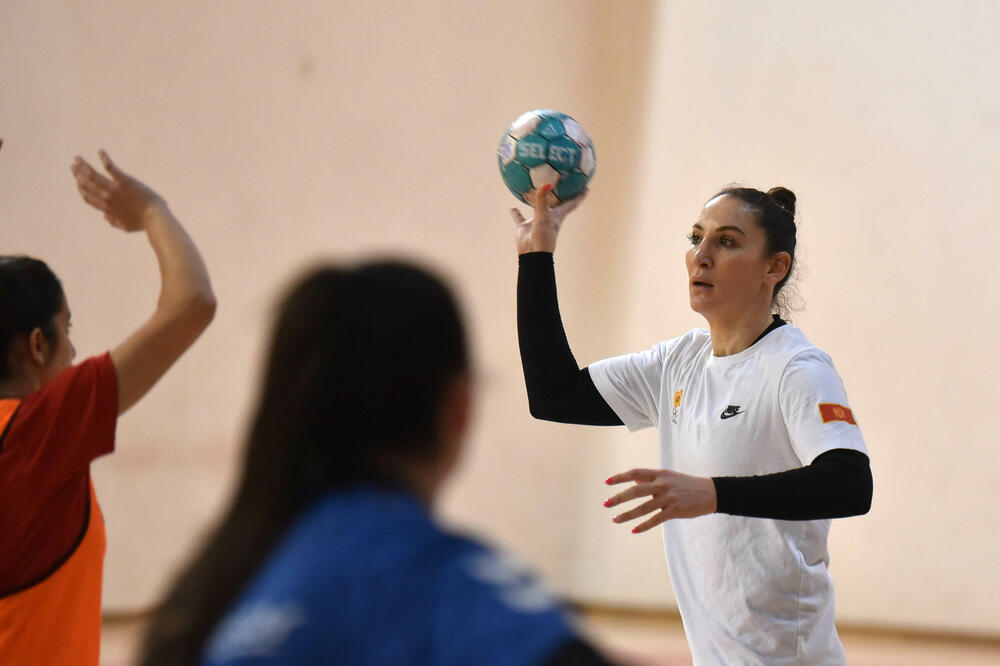Case Milena Raičević, among many other issues, opened up the problem of the right to motherhood of prominent female athletes. This topic, which is mostly kept silent in Montenegrin society, is not, however, an isolated local problem. In general, the real women in sports, even the basic ones, are in the deep shadow of the results and increasing sums of money, which, through contracts and beyond, buy the silence that prevailed in Montenegro around the motherhood of the famous handball player.
"Unfortunately, the contract, and there is probably an annex, is not available to the public in this particular case, so it is difficult to give a more specific comment, except that the rights of the handball player Raičević have been significantly violated in terms of existing regulations. On the other hand, whether there were tacit agreements not only in the case in question, but overall in terms of the value of the contract, and what the athletes received outside of the contract or part of the amount that had to be returned, I expect that the competent state authorities will finally deal with it" , explains dr Marko Begovic.
On the other hand, Miloš Lalević, an expert in sports law, points out that when female athletes decide to become mothers during their careers, they should be provided with a smooth legal environment for realizing that right and special legal protection during pregnancy and childbirth, of course taking into account the interests of the sports organization and finding a balance between all of the above.
Begović warns that athletes have a choice either to remain silent or to be removed from the sport, which consequently means jeopardizing their existence.
"In that spirit, this specific situation should be viewed as a reflex of established relations in sports, which must be radically reformed. So far, the judicial authorities have shown themselves to be either unwilling or insufficiently prepared to implement the necessary measures and actions within their jurisdiction, including financial forensics and detailed verification of the property status. Then it will be clear why certain individuals have been in decision-making positions in sports for decades," Begović points out, warning that changes to the Law on Sports are currently in circulation, which aims to preserve the clientelistic system.

An example that should be followed in the future, Begović points out, is the model contract of the Norwegian Handball Association, which was drawn up in partnership with the Norwegian Sportsmen's Association, in which the rights of athletes in accordance with Norwegian regulations, including the right to motherhood, are especially underlined.
Bearing in mind that sports law governs the field of legal relations in sports of a different nature, it is understandable, Lalević believes, that the rights and obligations of athletes in a sports organization are realized not only in accordance with the Sports Law, but also the Labor Law, the sports rules of the competent national sports association, rules of an international sports organization, a contract or other act between an athlete and a sports organization.
"Creating legal conditions for women to freely exercise their right to motherhood without losing their sports careers is, Lalević believes, certainly a serious topic which, through the specific case of the handball player Raičević, has opened up a lot of important issues in the field of sports law," adds Miloš Lalević. .
Certainly, one of the first issues that arise is the balance of the interests of sports organizations, on the one hand, and the inviolable right of a woman to realize herself as a mother, on the other hand, and to protect that right of hers during her sports career, emphasizes Lalević.
He points out that the Law on Sports does not regulate this issue, but, he believes, the connection between the Law on Sports and the Law on Labor in the context of the regulation of labor relations in sports also includes the issue of special protection of women during pregnancy.
The question is, first of all, are these obligations well understood and respected in practice, this kind of connection between the Law on Sports and the Law on Labor, and finally the obligations that arise from all of the above towards the professional athlete, explains Lalević.

"Generally speaking, there is a major systemic deficiency in the protection of employment rights in the sports field in Montenegro due to the fact that despite the obligation from the Labor Law from 2019, a collective agreement for sports entities has not yet been concluded. The collective agreement certainly represents a space for solving key problems at the level of a certain area", said Lalović.
Law on Sports and Law on Labor
Article 27 of the Law on Sports prescribes the definition of a professional athlete as a person who practices sports as a primary occupation and has established a working relationship with a sports organization in accordance with labor regulations. First of all, this means that a professional athlete, because of the above, must be treated like other employed persons in any other field.
"This directly indicates that the contract concluded with a professional athlete must be in accordance with the Labor Law, and that law first prescribes that the employee is a natural person who has an established employment relationship with the employer, that discrimination on the basis of pregnancy is prohibited, that an employed woman has special protection during pregnancy and childbirth and other rights that treat women with special attention during pregnancy and childbirth", explains Lalović.
Alison Felix vs Nike
Alison Felix, an American athlete, won a total of nine Olympic medals during her career. These include gold medals in relay races and individual medals in the 200m and 400m. Despite her brilliant career, this athlete became more famous for her conflict with the Nike company than for her numerous medals.
First, in an article in the New York Times, Felix accused Nike, her longtime sponsor, of punishing her and other pregnant athletes in contract negotiations.
After Alison Felix called out the sportswear giant, Nike has expanded payment protection for pregnant women and new mothers.
This move by the American athlete was full of temptations. She risked losing her primary source of income and could be blacklisted from major Nike-sponsored rallies.
In September 2017, Wes Felix, Alison's older brother and agent, and Nike began renegotiating the contract. Nike, as Wes said, proposed a 70% pay cut.
In June 2018, Alison told Wes she was pregnant. Fearing that Nike might withdraw the offer if she reveals that she is starting a family, Alison and Wes decide to keep her pregnancy a secret.
Alison Felix trained before dawn so no one could see her working out. She wore baggy clothes, sacrificed all the rituals of her first pregnancy out of fear for the financial security of the family she was supposed to have.
Meanwhile, negotiations with Nike were becoming increasingly tense. The company agreed not to apply any performance reductions to her pay for a year after she gave birth, but rejected her request to add to the contract that these protections were related to maternity.
Alison Felix's message was clear: Nike did not want to set a precedent in supporting future female athletes who want to start families.
For Alison Felix, the thought of leaving the company that had sponsored her for nearly a decade was terrifying. This company also sponsors several major world competitions, so Alison Felix would also be risking income from fees for performances in these competitions.
"There has always been silence and fear surrounding motherhood in sports. I remember feeling like I had to choose between the sport I love and my family,” Alison said at the time.
During her pregnancy, Felix developed preeclampsia, a condition characterized by high blood pressure and adverse birth outcomes that is more common in African-American women. Kamrin, her daughter, was born seven weeks ahead of schedule on November 28, 2018. Kamrin spent about a month in intensive care before Felix and Ferguson took her home.
Three months after speaking in the New York Times, Nike announced that the company would guarantee athletes' salary and bonuses for 18 months during pregnancy. However, Felix left Nike and signed a contract with Atleta, a company that offered her full benefits for 18 months if she decided to become a mother again.
That September, at the World Athletics Championships in Doha, Qatar, Felix won her 12th and 13th career gold medals - her first as a mother.
Bonus video:





